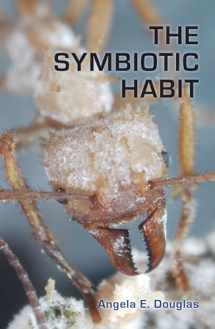
The Symbiotic Habit
Book details
Summary
Description
Throughout the natural world, organisms have responded to predators, inadequate resources, or inclement conditions by forming ongoing mutually beneficial partnerships--or symbioses--with different species. Symbiosis is the foundation for major evolutionary events, such as the emergence of eukaryotes and plant eating among vertebrates, and is also a crucial factor in shaping many ecological communities. The Symbiotic Habit provides an accessible and authoritative introduction to symbiosis, describing how symbioses are established, function, and persist in evolutionary and ecological time.
Angela Douglas explains the evolutionary origins and development of symbiosis, and illustrates the principles of symbiosis using a variety of examples of symbiotic relationships as well as nonsymbiotic ones, such as parasitic or fleeting mutualistic associations. Although the reciprocal exchange of benefit is the key feature of symbioses, the benefits are often costly to provide, causing conflict among the partners. Douglas shows how these conflicts can be managed by a single controlling organism that may selectively reward cooperative partners, control partner transmission, and employ recognition mechanisms that discriminate between beneficial and potentially harmful or ineffective partners.
The Symbiotic Habit reveals the broad uniformity of symbiotic process across many different symbioses among organisms with diverse evolutionary histories, and demonstrates how symbioses can be used to manage ecosystems, enhance food production, and promote human health.


We would LOVE it if you could help us and other readers by reviewing the book
Book review




